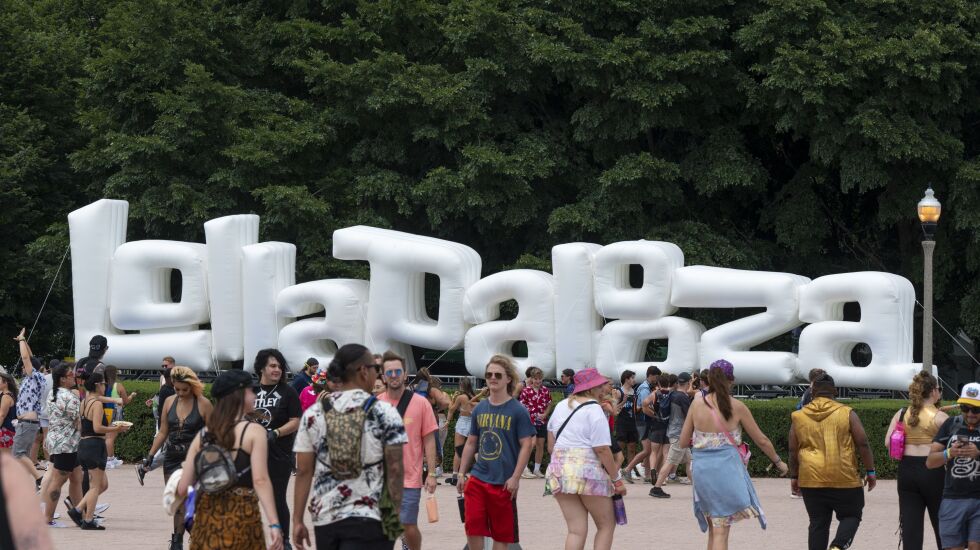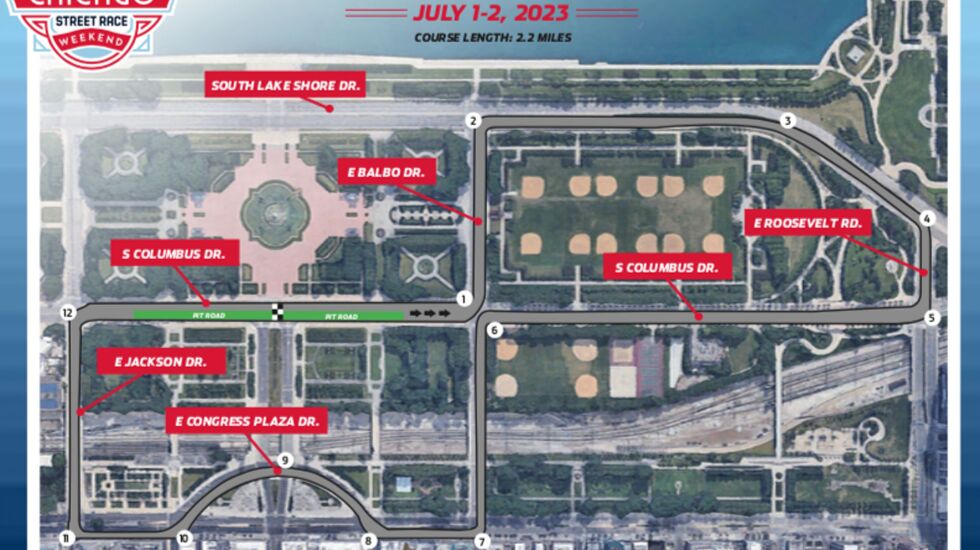
Lollapalooza generated a third of a billion dollars in economic activity in Chicago last year, three times higher than the NASCAR Fourth of July weekend street race is expected to rake in, according to a new study.
But the street race, although less lucrative for Chicago businesses, will occupy parts of Grant Park for nearly twice as much time during the busy summer season.
Critics call it a bad deal.
“The impact to the city in terms of cost and congestion will be more than Lolla, and the returns are significantly less,” said 2nd Ward Ald. Brian Hopkins said of the NASCAR race, scheduled for July 1-2.
NASCAR may take up space in Grant Park between 20 and 40 days, depending on weather, Hopkins said. NASCAR will also need to modify curbs and remove manhole covers, which could add more time, Hopkins said.
NASCAR, which hasn’t given a more specific timeline, did not respond to requests for comment.
Lolla, by contrast, will use Grant Park for 24 days total, between July 21 and Aug. 13. The four-day festival is set for Aug. 3-6.
Lollapalooza, which recently signed a 10-year deal with the city, appears to be more advantageous for the city in terms of economic activity, tax revenue and fees.
The music festival generated $335.4 million in direct and indirect economic revenue in Chicago last year, according to a new study by Texas-based Angelou Economics, retained by Lollapalooza’s organizer, C3 Presents. The music festival also generated $4.2 million in city amusement taxes in 2022 and $41.3 million in city, county, state and federal tax revenue, the study found.
Lollapalooza pays the city a guarantee of $2 million and $750,000 if the festival is not held.
By contract, NASCAR pays a $500,000 permit fee per year, a guarantee of 15% of net commissions on concessions and merchandise, $2 per admission ticket and a $50,000 security deposit for damage to Grant Park. NASCAR pays the city nothing if the race is canceled.
Lollapalooza has been a good neighbor to Loop and South Loop residents, according to Jim Wales, vice president of the Grant Park Advisory Council. But he remains skeptical of NASCAR, which he said has held details about the race “close to the chest.”
“This NASCAR race is going to have a major impact on the neighborhood,” Wales said. “We know parts of the park could be closed for 40 days, and that’s unacceptable when you look at the money generated, at least on paper, by NASCAR.”
He said that holding events in Grant Park is a “benefit for the city, but it has to be a balancing act” between economic growth and keeping it open as a public park.
“Grant Park is not only the front yard of Chicago, but it’s also the park for the thousands of residents who live downtown,” he said.

Hopkins was an early critic of the NASCAR deal and blamed Mayor Lori Lightfoot for not consulting alderpersons, including himself. He said the economic study of Lolla shows how bad the NASCAR deal is.
“It just highlights the way you don’t do it, the way Lightfoot did,” Hopkins said. “The mayor’s office didn’t look into the data and prevented us from doing our jobs. The result is we’re stuck with what’s increasingly obvious: It’s a bad deal.”
In a statement, Lightfoot’s office said NASCAR’s economic impact will likely grow over time, as Lollapalooza’s has over the last decade.
There’s also the unknown toll NASCAR street closures will have on the city’s museum campus, which will be cut off from patrons during its busiest summer weekends.
The Shedd Aquarium has estimated it may lose between $2 million to $3 million because of the NASCAR-related street closures.
Hopkins said the NASCAR race will also hurt the Adler Planetarium and Field Museum.
“It’s going to have a negative impact on these cultural institutions that have been struggling themselves during the pandemic. They still haven’t fully recovered from that,” Hopkins said.
“The Adler and Shedd will be here long after NASCAR is gone. We should make sure these Chicago institutions are not harmed after these events go forward,” he said.







